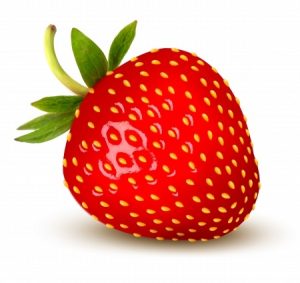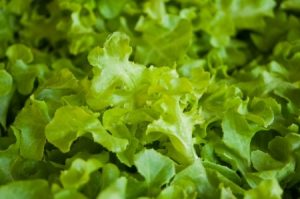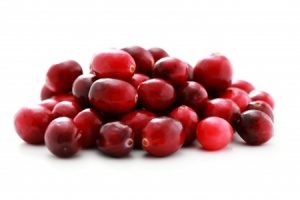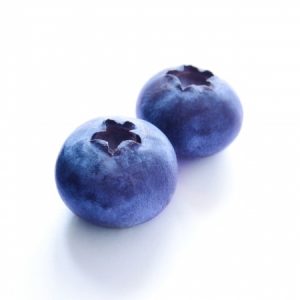
Did you know that 14 different pesticide residues were detected on one strawberry sample? 94% of strawberries tested were positive in residues and 90% of strawberries tested had at least one pesticide on it.
Lettuce
More than 50 pesticides have been identified on lettuce.
Fifty-one pesticide residues were found on lettuce. Twelve are known carcinogens, 20 are hormone disruptors, 9 are neurotoxins, and 10 are developmental toxins.
Unfortunately due to its cell structure, lettuce is one of the most likely vegetables to retain pesticide contamination.

Cranberries
Chemicals linked to cancer, obesity, and developmental disorders have been found on cranberries.
Six are suspected hormone disrupters.
Diazinon is commonly used on cranberries to control insects. The USDA Pesticide Data Program found that 5 percent of conventional cranberries sampled in 2016 had traces of diazinon.

Cranberries have the most pesticides per serving, and cranberries that have been imported have the greatest pesticide risk per serving than any other fruit or vegetable according to the Organic Center.
Blueberries
Blueberries are one of those supermarket fruits where you want to buy organic because up to 14 of the 52 pesticide residues found on blueberries are neurotoxins that can harm brain development and contribute to a lower IQ, according to the USDA.
The pesticide residues seem to cling to the blueberries. Even when you wash blueberries that have been treated with pesticides, it’s not always enough to get the residues off. So, it’s best to buy organic or frozen blueberries whenever possible, but still wash them thoroughly.

How To Remove Pesticides
Vinegar
A vinegar solution has been shown to effectively reduce the amount of pesticide traces on fruit, berries, and vegetables. Simply make a mixture of ½ cup of white vinegar to 2 cups of water and allow the fruit to soak for 5-10 minutes.
Rinse well when finished.
Saltwater Soak
Research suggests that soaking fruits and vegetables in a 10 percent saltwater solution for 20 minutes gets rid of most of the residues from the four most common pesticides.
Baking Soda
Soaking fruits and vegetables in baking soda and water is also a safe way to remove pesticides with no after taste.
Buy organic from your local farmer, and learn to grow your own.
________________
If you want to learn more about healthy living, contact me at janethull.com. Remember that you are never alone when you are looking for good health!
_____________
Disclaimer: This article is for informational purposes only, and is educational in nature. The FDA may not have evaluated some of the statements. This article is not intended to diagnose, treat, cure, or prevent any disease. Please discuss with your own, qualified health care provider before adding supplements or making any changes to your dietary program.
Before taking vitamins, consult your doctor; pre-existing medical conditions or medications you are taking can affect how your body responds to multivitamins.
You have our permission to reprint this article if you attribute us with a live back-link to this article https://janethull.com/